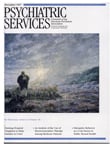In her book Paths of Life: Seven Scenarios, psychoanalyst Alice Miller has as her central premise that our families and our early experiences "mark us for life." She illustrates her point by recounting seven fictionalized stories of people who had early experiences that left a lifelong impact. The subject is an important one, and Miller is a gifted clinician, but in the final analysis the book is not as successful as it might have been.
The key to Miller's thesis lies in the word "mark." While we might all easily agree that we are influenced, guided, or affected by early experiences, "marked" is a harsher and more judgmental term. "Marked" seems synonymous with "scarred," "burdened," perhaps even "cursed." Of course there are childhood experiences that "mark" us in Miller's sense. Childhood sexual and physical abuse (
1) and the early and tragic death of a mother or father (
2) are such events. But there are many other less catastrophic events that affect and influence us without inflicting permanent damage. These experiences happen because the world is an imperfect place, and parents are human and fallible, like all people. Miller makes no distinction among the range of events that affect us.
Miller has chosen to convey her points by telling stories of the lives of people that she has made up. They are fictional accounts of fictitious people. Unfortunately, this literary device fails to serve Miller's purpose of enlivening her message. Instead, the voices of her characters, whether in dialogue or through letters, sound stilted and artificial. The characters frequently sound like psychotherapists giving a lecture rather than real people talking about their lives. Occasionally, when Miller wants to make an especially didactic point, she has a character reference a book or an article he or she has recently read.
Moreover, some of the vignettes themselves stretch the reader's credulity. In one scenario, a woman confronts the father who sexually stimulated her as a young child. At the end of their conversation, the father confides: "I'm sorry I was so blind. I never knew, never even suspected that I had done you any harm, severe harm as you say. . . . Today I see that I was guilty. But I don't feel attacked. I'm going to think over carefully what you've said to me."
Any clinician who works with sexual abuse survivors knows how unrealistic such dialogue is. Few perpetrators graciously admit their wrongdoing. Instead, survivors often find their experiences invalidated, trivialized, or denied. Occasionally, abusers attempt to blame survivors for the abuse or make threats of future abuse if survivors continue to "spread nasty rumors." The exchange in Miller's book may be every survivor's dream, but it is rare indeed in real-life confrontations.
In her concluding remarks, entitled "Reflections," Miller returns to the style her readers (myself included) have come to expect and admire. Her discussion of the power of gurus and cults is both lucid and insightful. In her comments on the origins of hatred, she draws heavily on her own previous work to understand the motives of vicious dictators, Hitler in particular, and offers a discussion that is both powerful and unsettling.
Alice Miller is once again to be commended for continuing to remind us of the devastating impact parental cruelty has on children. Unfortunately, in Paths of Life she has delivered her message in a flawed vehicle.

